CMN 315
Organizational Communication

1. Course Description
Effective communication has always been an essential component of business. It is particularly important today, when business people communicate in increasingly complex and diverse workplaces. They must deal with ethical dilemmas, intensifying organizational change, global and multicultural partners, increased specialization, and constant technological developments. Using practical examples and case studies, this course both explores communication challenges that business professionals face today and helps them develop strategies and practices designed for the contemporary workplace.
Last Revised
Prerequisites
CMN 100 or CMN 114 or CMN 200 or CMN 279 or CMN 300 or Direct Entry
Delivery
Lecture: 2 hours, Lab: 1 hour
2. Course Objectives & Learning Outcomes
- To use communication theories to analyze complex organizational communication issues
- To develop and assess solutions to complex organizational issues
- To present oral and written analyses of organizational case studies
3. Topics Covered
Issues of today’s workplace
- Globalization
- Diversity
- Accountability and confidence
- Change
- Specialization
- Technology and information
Communication strategies and practices
- Written communication
- Signs and signifiers
- Electronic communication
- Collaboration
4. Teaching Method
Lectures and Seminars
Teaching will be conducted by lectures plus seminars. In the seminars students will have the opportunity to present papers and lead discussion of cases.
Graded Assignments
Evaluation will be based on a minimum of three term assignments:
- Oral written seminar presentation
- Written report of seminar presentation
- At least one individual written assignment
- Tests and quizzes
5. Course Materials
Mumby, D. K., & Khun, T. R. (2019). Organizational Communication: A Critical Introduction. 2nd Edition. Thousand Oaks, CA: Sage Publications. (hard copy or digital)
Topicality and flexibility will be achieved by the use of current business periodicals and supplementary material in addition to the prescribed text.
6. Policy
6.1 University Policies
Students are required to adhere to all applicable university policies found in their Online course shell in D2L and the Course Outline Policies.
6.2 Print and Digital Copying Guidelines:
Toronto Metropolitan University complies with Canada’s Copyright Act which protects both creators/owners and users of copyrighted materials. Students should familiarize themselves with TMU Copyright policies and procedures, and contact the Copyright and Scholarly Engagement Librarian at copyrt@torontomu.ca for questions, concerns and clarification of the copyright rules.
6.3 Turnitin.com
Turnitin.com is a plagiarism prevention and detection service to which Toronto Metropolitan University subscribes. It is a tool that helps instructors determine the similarity between student work and the work of other students who have submitted papers to the site (at any university), Internet sources, and a wide range of books, journals, and other publications. While it does not contain all possible sources, it gives instructors some assurance that students’ work is their own. No decisions are made by the service; it generates an “originality report,” which instructors must evaluate to judge whether something is plagiarized.
Students agree by taking this course that their written work will be subject to submission for textual similarity review to Turnitin.com. All submitted papers will be included as source documents in the Turnitin.com reference database solely for the purpose of comparing the similarity of such papers. Use of the Turnitin.com service is subject to the terms-of-use agreement posted on the Turnitin.com website. Students who do not want their work submitted to this plagiarism detection service must, by the end of the second week of class, consult with their instructor to make alternative arrangements. Even when an instructor has not indicated that a plagiarism detection service will be used, or when a student has opted out of the plagiarism detection service, if the instructor has reason to suspect that an individual piece of work has been plagiarized, the instructor is permitted to submit that work in a non-identifying way to any plagiarism detection service.
6.4 Email Communication
Toronto Metropolitan University requires that any official or formal email communication from students be sent from their official Toronto Metropolitan University electronic accounts.
6.5 Video and Audio Recording
No video or audio recording is permitted in class without the express permission of the instructor.
7. Learning Management System
Toronto Metropolitan University supports Brightspace by D2L as its official Learning Management System. University Policies governing Brightspace have been documented at the Courses @ Toronto Metropolitan University Privacy and Security website.

